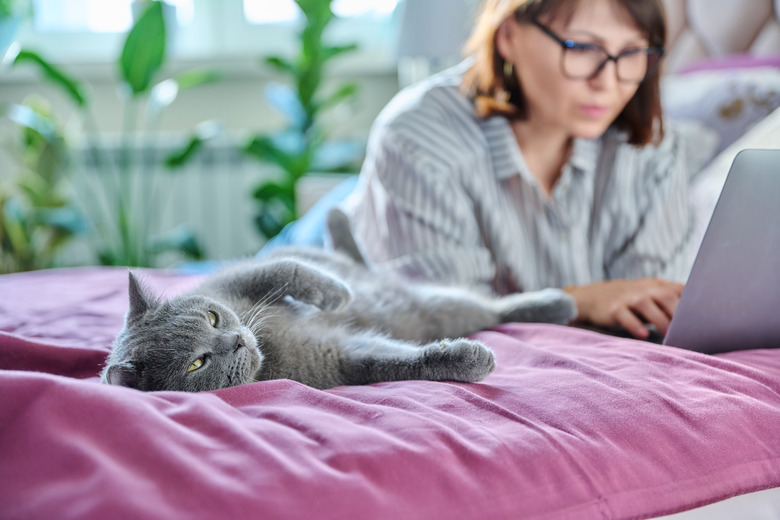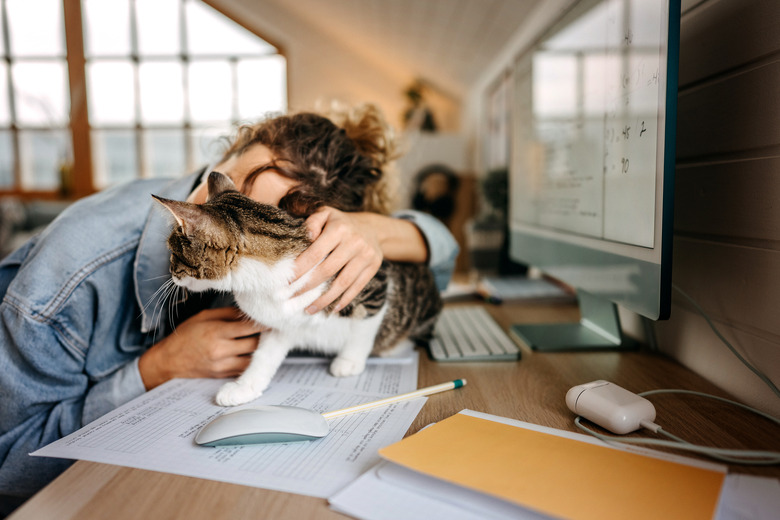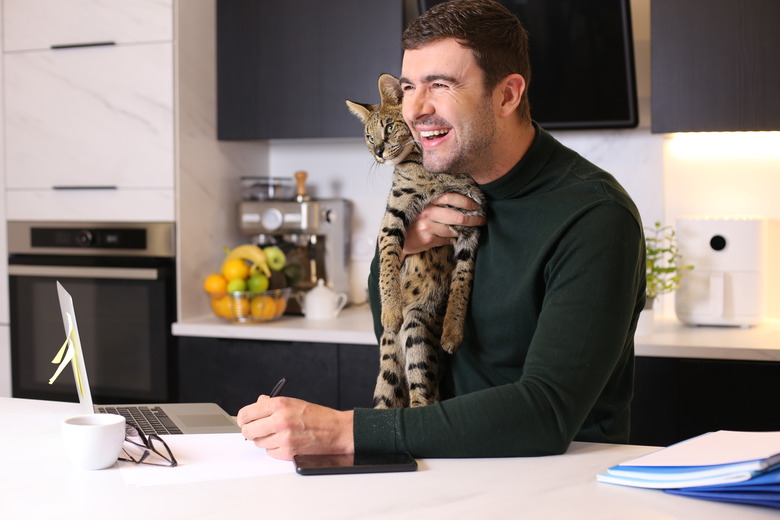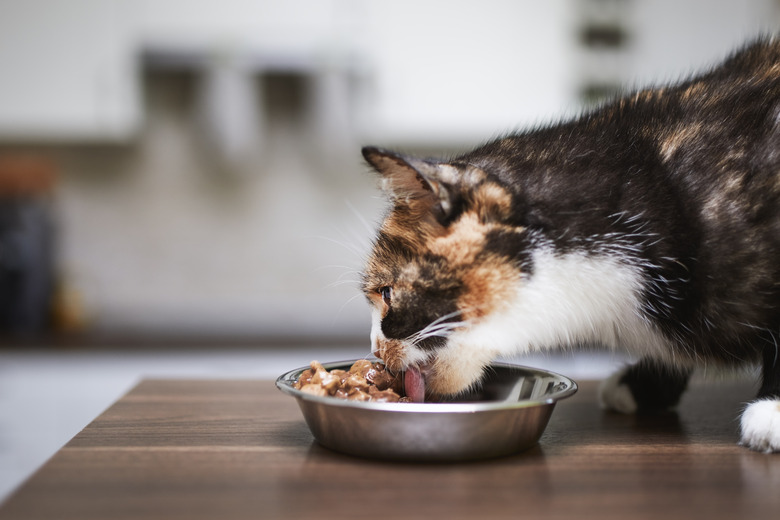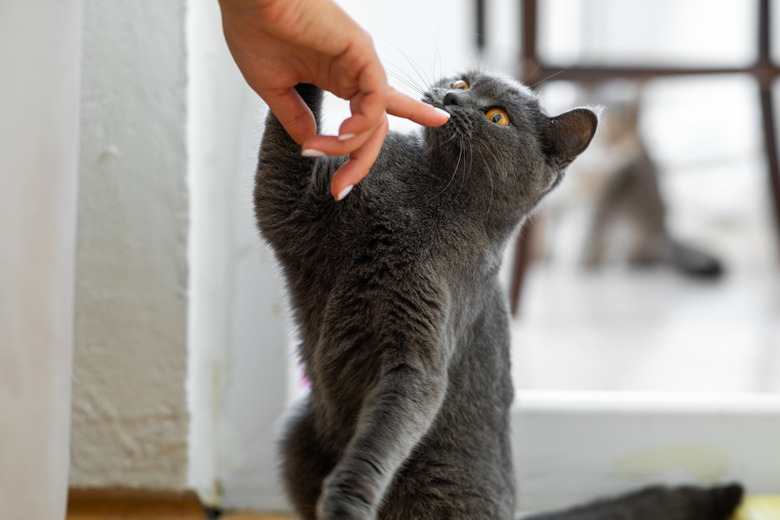Iron Rich Foods For Cats That Increase Red Blood Cells
Like calcium and vitamin A, iron is among the essential vitamins and minerals for maintaining good cat health. Healthy cats who are fed a high-quality commercial diet that includes iron-rich food for cats rarely experience iron-deficiency anemia. If your anemic cat is diagnosed as iron deficient, veterinary treatment for a low iron count or anemia will be necessary.
Once the cause of your cat's iron deficiency is determined, your veterinarian will advise on an appropriate treatment plan, diet changes, and supplements. It's important for pet caregivers to understand how to prevent iron-deficiency anemia and how to recognize the symptoms because if the underlying cause of the anemia is left untreated, it can be life-threatening. Never attempt to treat a cat's iron deficiency without veterinary advice.
What do red blood cells do for cats?
What do red blood cells do for cats?
Red blood cells, also known as erythrocytes, are produced in the bone marrow and carry oxygen around the cat's body to fuel the cells and tissues that expend energy. Hemoglobin is the molecule in red blood cells that contains the protein that binds oxygen. After delivering oxygen to the cat's organs, red blood cells take carbon dioxide back to the lungs so your cat can exhale it. Red blood cells circulate around the body for about two months before they age out, and their components are recycled to create more blood cells.
What is iron deficiency in cats?
What is iron deficiency in cats?
Iron deficiency in cats is a type of anemia caused by too little iron in the body to support the healthy production of red blood cells. Like humans, cats require a certain amount of iron for their body to function normally. Without iron, the bone marrow may not make the red blood cells large enough to efficiently carry oxygen to the cat's organs and tissues. Likewise, it may not be able to adequately remove carbon dioxide and move it to the lungs to be exhaled.
What causes iron deficiency in cats?
What causes iron deficiency in cats?
Iron deficiency in cats is most often caused by blood loss, often in the gastrointestinal tract, and occasionally by a diet that's not nutritionally meeting a cat's needs. Common causes of blood loss that could lead to iron-deficiency anemia in cats include parasites, like fleas, ticks, and worms. Severe underlying illnesses, such as kidney disease or malignant tumors, may also be a cause.
Symptoms of iron deficiency in cats
Symptoms of iron deficiency in cats
While anemia caused by an iron deficiency in cats is unusual, knowing the symptoms is essential. An iron deficiency can be a sign of a serious health problem, so if your cat shows any of the following symptoms, seek veterinary advice immediately.
- Weakness
- Lethargy
- Loss of appetite
- Dark stools
- Blood in stools
- Blood in urine
- Bloody nose
- Pica
- Pale mucous membranes
- Rapid heart rate
Types of anemia in cats
Types of anemia in cats
Iron deficiency can lead to anemia in cats. There are two types of anemia in cats. Both have different causes.
- Regenerative anemia: This is the most common type of anemia found in cats and occurs when the body produces additional blood cells. This type of anemia is typically brought about by sudden or acute blood loss caused by a major injury, a severe parasite infestation, or a disease called hemolysis that destroys red blood cells. Certain toxins, tumors, or infections can also cause regenerative anemia.
- Nonregenerative anemia: If the body is not making enough blood cells or has stopped making them, nonregenerative anemia occurs. Kidney disease, bone marrow disorders, or a diet with insufficient iron are some of the causes.
Iron-rich foods for cats
Iron-rich foods for cats
If your cat is suffering from an iron deficiency due to poor nutrition, your veterinarian will advise you on providing an iron-rich diet and any supplements that may be necessary. There are many foods rich in iron that you can feed your cat. Make sure to consult your veterinarian before making any dietary changes. Feeding iron-rich foods alone will not correct anemia in cats.
- Red meat and lean meat: Beef, chicken, turkey, and pork are all excellent sources of iron. Make sure to remove any fat from the meat, as it can cause cat pancreatitis. Cook all meat to reduce any health risks associated with raw meat.
- Organ meats: Kidney, heart, liver, brain, and heart meats are highly nutritious and contain high iron levels. Do not serve these raw and only offer them in small amounts since they are also high in calories.
- Fish: Fresh fish and some canned fish are good iron-rich foods for cats. Do not feed raw fresh fish, as it contains an enzyme called thiaminase that destroys thiamine, an essential B vitamin for cats. Shellfish, sardines, salmon, and anchovies are all excellent sources of iron for cats. When using canned fish, check the labels carefully. Only give canned fish preserved in water with no added salt or flavorings.
- Eggs: Eggs are among the best iron-rich foods. Always cook eggs to prevent any health risks to your cat.
- Vegetables: Green leafy vegetables and legumes are iron-rich and may be included in your cat's diet, although some cats are unwilling to eat them.
Treatment for iron deficiency in cats
Treatment for iron deficiency in cats
If your cat has been diagnosed with an iron deficiency, your veterinarian will prescribe a course of treatment. The most common treatments range from dietary iron supplementation to routine iron injections. In cases of severe anemia, your cat may require a blood transfusion. Veterinary supervision and care are always necessary for iron deficiencies in cats to ensure that any underlying conditions are correctly diagnosed and treated.
How to prevent iron deficiency in cats
How to prevent iron deficiency in cats
Feeding nutritious, high-quality commercial cat food is the best way to prevent iron deficiency in cats. It is also essential to ensure your cat has access to fresh, clean water at all times, as dehydration can inhibit iron absorption. Never give your cat iron supplements unless directed by a veterinarian. If you are concerned that your cat may be suffering from iron-deficiency anemia or if your cat is showing any signs or symptoms, seek veterinary advice.
The bottom line
The bottom line
Iron-deficiency anemia is uncommon but can be a sign of serious illness or a diet that is insufficient in iron. Cats should be fed a good-quality diet formulated to meet their nutritional needs. Supplements should not be given, and a diet change alone will not cure cat anemia. If your cat is showing any symptoms of iron deficiency, it is essential to consult your veterinarian so that they can diagnose the cause and prescribe the most suitable treatment.
